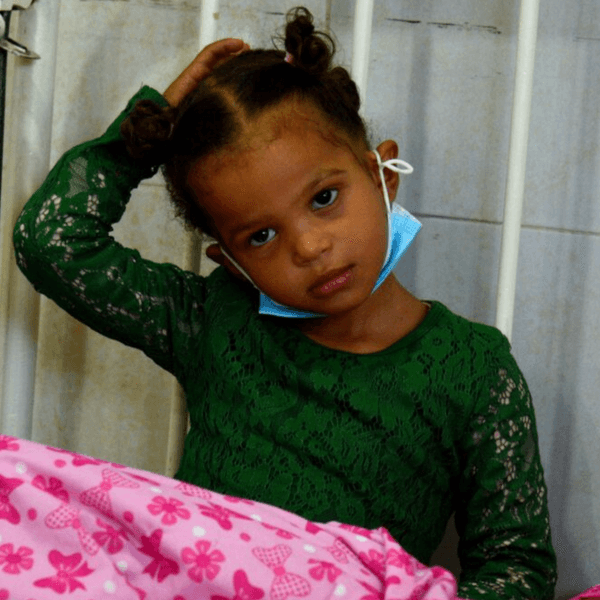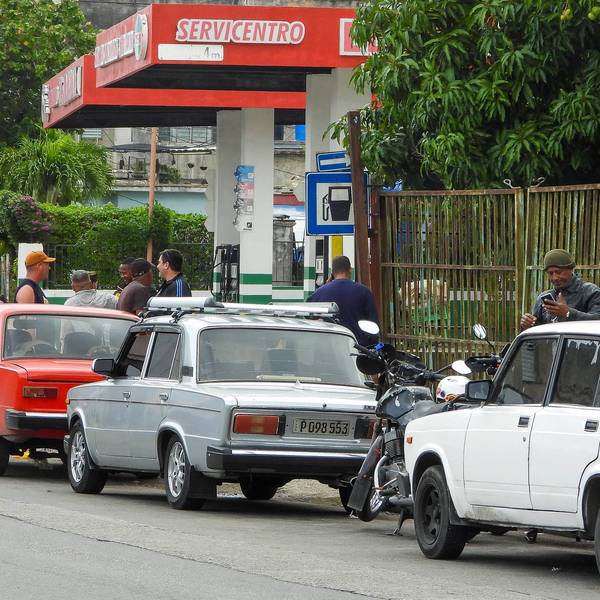In January, the government of the United States of America saw fit to seize $4.207 million in funds allocated to Cuba by the United Nations Global Fund to Fight AIDS, Tuberculosis and Malaria for the first quarter of 2011, Cuba has charged.
The UN Fund is a $22 billion a year program that works to combat the three deadly pandemics in 150 countries. [Prensa Latina (Cuba), March 12, 2011]
"This mean-spirited policy," the Cuban government said, "aims to undermine the quality of service provided to the Cuban population and to obstruct the provision of medical assistance in over 100 countries by 40,000 Cuban health workers."
Most of the funds are used to import expensive AIDS medication to Cuba, where antiretroviral treatment is provided free of charge to some 5,000 HIV patients. [The Militant (US, Socialist Workers Party), April 4, 2011]
The United States sees the Cuban health system and Havana's sharing of such as a means of Cuba winning friends and allies in the Third World, particularly Latin America; a situation sharply in conflict with long-standing US policy to isolate Cuba.
The United States in recent years has attempted to counter the Cuban international success by dispatching the U.S. Naval Ship "Comfort" to the region.
With 12 operating rooms and a 1,000-bed hospital, the converted oil tanker has performed hundreds of thousands of free surgeries in places such as Belize, Guatemala, Panama, El Salvador, Peru, Ecuador, Colombia, Nicaragua and Haiti.
However, the Comfort's port calls likely will not substantially enhance America's influence in the hemisphere.
"It's hard for the U.S. to compete with Cuba and Venezuela in this way," said Peter Hakim, president of the Inter-American Dialogue, a pro-U.S. policy-research group in Washington. "It makes us look like we're trying to imitate them. Cuba's doctors aren't docked at port for a couple days, but are in the country for years." [Bloomberg News, Sept. 19, 2007]
The recent disclosure by WikiLeaks of U.S. State Department documents included this little item: A cable was sent by Michael Parmly from the U.S. Interests Section in Havana in July 2006, during the run-up to the Non-Aligned Movement conference.
Parmly notes that he is actively looking for "human interest stories and other news that shatters the myth of Cuban medical prowess."
Michael Moore refers to another WikiLeaks State Department cable: "On Jan. 31, 2008, a State Department official stationed in Havana took a made-up story and sent it back to his headquarters in Washington. Here's what they came up with: [The official] stated that Cuban authorities have banned Michael Moore's documentary, 'Sicko,' as being subversive.
"Although the film's intent is to discredit the U.S. healthcare system by highlighting the excellence of the Cuban system, the official said the regime knows the film is a myth and does not want to risk a popular backlash by showing to Cubans facilities that are clearly not available to the vast majority of them."
Moore points out an Associated Press story of June 16, 2007 (seven months prior to the cable) with the headline: "Cuban health minister says Moore's 'Sicko' shows 'human values' of communist system."
Moore adds that the people of Cuba were shown the film on national television on April 25, 2008. "The Cubans embraced the film so much it became one of those rare American movies that received a theatrical distribution in Cuba. I personally ensured that a 35mm print got to the Film Institute in Havana. Screenings of Sicko were set up in towns all across the country." [Huffington Post, Dec. 18, 2010]
The United States also bans the sale to Cuba of vital medical drugs and devices, such as the inhalant agent Sevoflurane which has become the pharmaceutical of excellence for applying general anesthesia to children; and the pharmaceutical Dexmetomidine, of particular usefulness in elderly patients who often must be subjected to extended surgical procedures.
Both of these are produced by the U.S. firm Abbot Laboratories.
Cuban children suffering from lymphoblastic leukemia cannot use Erwinia L-asparaginasa, a medicine commercially known as Elspar, since the U.S. pharmaceutical company Merck and Co. refuses to sell this product to Cuba. Washington has also prohibited the U.S.-based Pastors for Peace Caravan from donating three Ford ambulances to Cuba.
Cubans are moreover upset by the denial of visas requested to attend conferences in the field of Anesthesiology and Reanimation that take place in the United States. This creates further barriers for Cuba's anesthesiologists to update themselves on state of the art anesthesiology, the care of severely ill patients, and the advances achieved in the treatment of pain.
Some of the foregoing are but a small sample of American warfare against the Cuban medical system presented in a Cuban report to the United Nations General Assembly on Oct. 28, 2009.
Finally, we have the Cuban Medical Professional Parole (CMPP) immigration program, which encourages Cuban doctors who are serving their government overseas to defect and enter the U.S. immediately as refugees.
The Wall Street Journal reported in January of this year that through Dec. 16, 2010, CMPP visas had been issued by U.S. consulates in 65 countries to 1,574 Cuban doctors whose education had been paid for by the financially-struggling Cuban government. [Wall Street Journal, "Cuban Doctors Come In From the Cold" (video), Jan. 14, 2011]
This program, oddly enough, was initiated by the U.S. Department of Homeland Security. Another victory over terrorism? Or socialism? Or same thing?
Wait until the American conservatives hear that Cuba is the only country in Latin America offering abortion on demand, and free.



